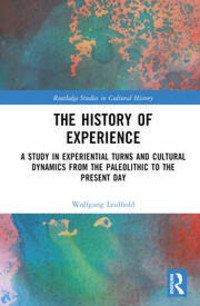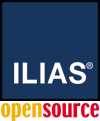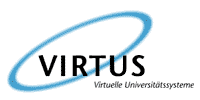Forum: Ecology, Ethos & Experience (since 2023)
The Forum for Ecology, Ethos & Experience is the latest project at our chair. Its mission is to inform humanity and to inspire it to save, protect and rebuild the environment. Therefore, we support the discussion about the ecological challenges of our time.
Ecology lays right in the center of this discussion. The ecological perpective is based on a new kind of experience, which changed our awareness of the human, nature and society, of our place on earth and in the cosmos: We are the living part of a living whole. This new experience requires a new ethos - a ethos, in which we bring together the demands of the parts and the whole as an integral sythesis.
Us humans, we are creatures that participate consciously in our world and ourselves. Because of this counsciouss participation, i.e. because of our experiences, our environment does not consist only of objects, but is rather our oikos, our existential home. And because human merely exist as part of their oikos, our home needs to be cared for. For this, we are responsible. And this responsibility consequentially asks for an ecological ethos.
The History of Experience (2022)

A Study in Experiential Turns and Cultural Dynamics from the Paleolithic to the Present Day
Wolfgang Leidhold's publications deal with the concept and history of experience since the 1980s. His interest in this topic first started with his dissertation on the Scottish philosopher Francis Hutcheson and his idea of a "moral sense". In subsequent publications, he developed a theory of experience. Finally, he discovered that the structure of experience has gradually changed. Starting from the Paleolithic to the present day, nine transformations (experiential turns) occurred. The results of this research are presented in his latest book: “The History of Experience” published by Taylor & Francis.
ILIAS open source (2000-2011)
Website: http://www.ilias.de
XENOS Project "Demo-Credit" on the professionalization of learning democracy (2009-2011)
The three-year project serves to professionalize democracy learning in the immigration society. "Demo-Credit", the title of the project, will further profile the certified trainings of the Academy Leadership & Competence of the Center for Applied Policy Research (C-A-P) (Ludwig-Maximilians-University Munich) by linking them to the "European Qualification Framework for Lifelong Learning" and publish corresponding training materials for this purpose. This will be supported by a two-year training course in democratic education with a university connection and further training conferences. Furthermore, building blocks for resource orientation for educational offers in the immigration society will be created and implemented. The project is co-financed by XENOS Germany through the Federal Ministry of Labor and Social Affairs and the European Social Fund and started on February 1, 2009.
Unirep-Online (2008-2010)
The project, which is funded by the state of North Rhine-Westphalia, is developing an Internet-based exam preparation system for law students in Germany. The online retitory thus represents an alternative to non-university offerings in the field of law. The WWU Münster is in charge of the project. The technical implementation is based on the learning platform ILIAS. Project duration is from 2008 to 2010.
Biotechnology and shift of values (2007-2009)
This project, funded by the German Federal Ministry of Education and Research, is a discourse and research project on ethical, social and legal issues of biotechnology. The aim of the project is to stimulate opinion formation among 16-20 year old students. To achieve this goal, teachers are provided with teaching materials on five different biotechnology topics. The teaching material is divided into pro and con arguments, so that controversial discussions can take place in the classes. The topics are: Stem Cell Research, Genetic Testing, Biobanks, Gene Plants and Genetic Fingerprinting.
The process of opinion formation among the students is examined and evaluated with the help of empirical social research. The project Biotechnology in Changing Values cooperates with the rhetoric project Youth Debates, which is organized annually nationwide by the non-profit Herti Foundation.
evoLearn (2006-2008)
With evoLearn, a constantly evolving e-learning project for further training in the retail sector is being set up. The aim is to constantly adapt and further develop the available merchandise modules to the current sales situation through user feedback. The use of the e-learning system is not limited to the qualification and training phase, but also offers direct access to correspondingly granular knowledge modules on the sales floor. The project is managed by the Bildungszentrum Sächsischer Handel.
BAZAAR (2005-2007)
To give interested parties the opportunity to try out new e-learning technologies for the creation of learning content, the EU project BAZAAR offers corresponding open source tools and platforms in a "sandbox". In addition, "Show-me-Days" were organized across Europe between 2005 and 2007, in which the corresponding tools could be tried out. Current information and interviews were published in the podcast "Sounds of the Bazaar".
SHARE (2005-2007)
The focus of this Minerva project of the European Union was on the possibilities of sharing free, Internet-based learning content for school teaching. In addition to investigations of existing offerings and usable tools, information sessions and training on the identification and use of free web content were given. The project was coordinated at the chair.
JOIN! (2004-2006)
The EU project JOIN! examined the market of free learning software and learning platforms from 2004 to 2006 and established corresponding catalogs of criteria for the selection of platforms. The project, which was realized with partners in Spain, France and Italy, was led by the University of Cologne. JOIN! is part of the Special Interest Group "Open-Source Software for Education in Europe" SiGOSSEE.
PolitikON - Political science online (2001-2004)
Under the direction of Prof. Leidhold, a portal for German political science was set up between 2001 and 2004 to offer students, journalists and those interested in political science learning content for self-study. The project was carried out in cooperation with the German Association for Political Science (DVPW) and was funded by the Federal Ministry of Education and Research. The University of Osnabrück has taken over the continuation of the project.
VIRTUS (1997-2001)
With VIRTUS, the Faculty of Economics and Social Sciences at the University of Cologne realized one of the first broad-based projects for the use of new media in university teaching in Germany. During the four-year project period from 1997 to 2001, organizational and production models were developed to enable the new information and communication technologies to be used in a way that was suitable for everyday use, simple and economical. Building on VIRTUS, ILIAS (see above) was developed and is now in use in schools, universities, administrations and companies worldwide. The former VIRTUS learning platform is available at http://www.e-learning.uni-koeln.de as ILIAS-open-source software at the University of Cologne.








